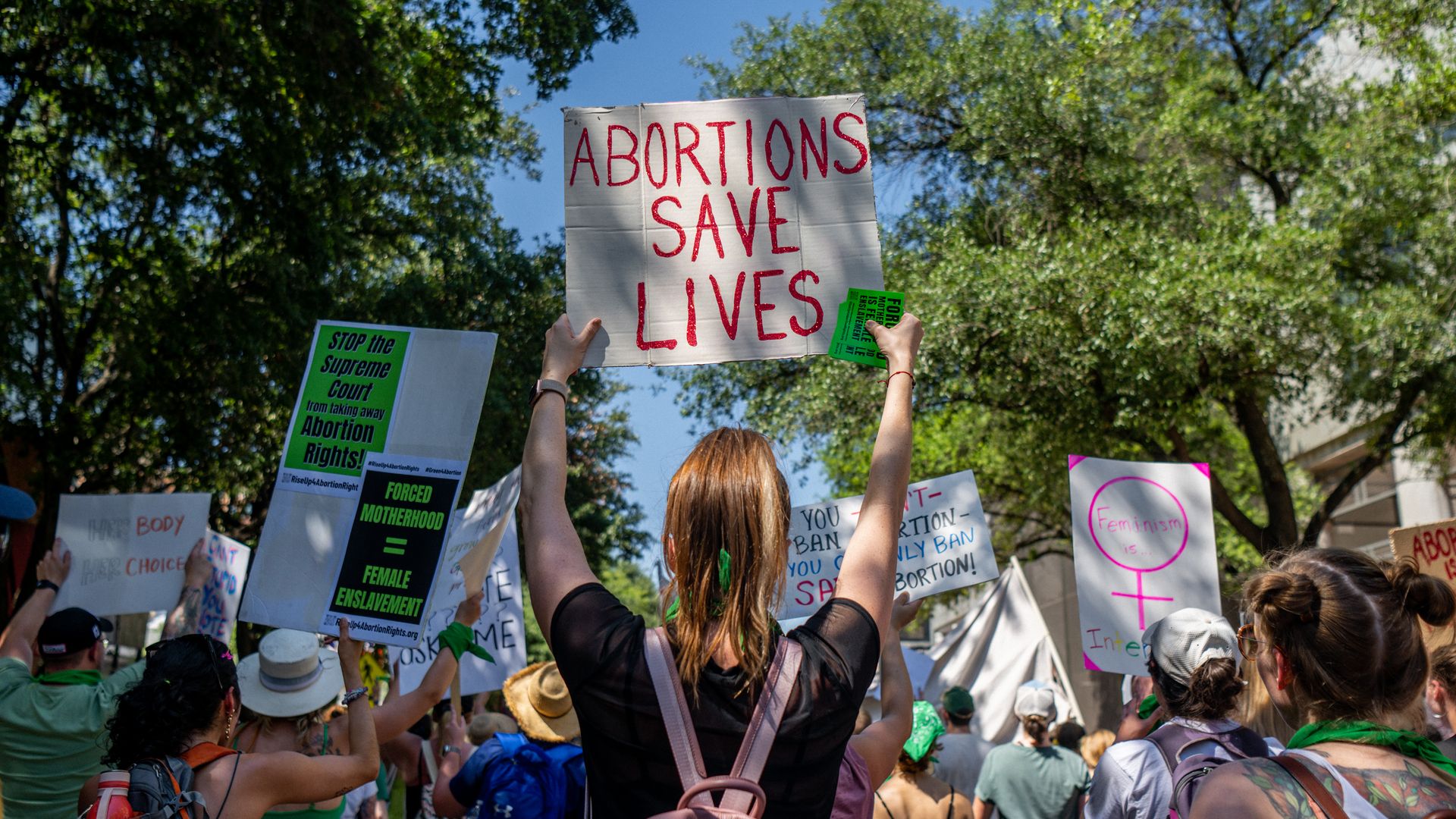
Abortion rights activists and supporters march outside of the Austin Convention Center on May 14, 2022 in Austin, Texas. Photo: Brandon Bell/Getty Images
Five women filed a lawsuit against Texas Monday over laws they say prevented them from getting abortions despite the life-threatening circumstances of their pregnancies, the New York Times first reported.
The big picture: It’s the first lawsuit “brought on behalf of women denied abortions” that’s been filed against a state that has enacted a ban shutting down abortion access since the Supreme Court overturned Roe v. Wade last June, per a statement from the Center for Reproductive Rights, which is representing the women in the case.
- “The lawsuit aims to hold the state of Texas accountable for the consequences of multiple harmful abortion bans on pregnant people facing obstetric complication,” the group said.
Driving the news: The 91-page complaint on behalf of the five women that asks the court to clarify if doctors can make exceptions to the state’s abortion ban under certain conditions states that the law has caused “catastrophic harms” and that the case represents “the tip of the iceberg,” per the NYT.
- It states that “millions” of people nationwide have been “denied dignified treatment as equal human beings” due to such laws.
Context: Current bans on abortion offer exceptions for certain medical emergencies, but health providers have faced questions determining what qualifies as an emergency under a state ban, per Axios’ Oriana González.
- Texas Attorney General Ken Paxton (R) led a state lawsuit against the Biden administration last year challenging its guidance to health providers advising that they could perform abortions in emergency cases and be protected under federal law, despite the bans in their states.
What they’re saying: Amanda Zurawski, one of the plaintiffs in the suit, told NBC News in an interview broadcast Monday evening that she developed sepsis after being denied medical intervention due to the statewide abortion ban.
- “Because of the law, I very nearly died,” Zurawski said. “Nothing about this is pro-life.”
- Representatives for Paxton, who’s named in the lawsuit along with the state medical board and its director as defendants, could not be immediately reached for comment.
Editor’s note: This article has been updated with additional details throughout.







